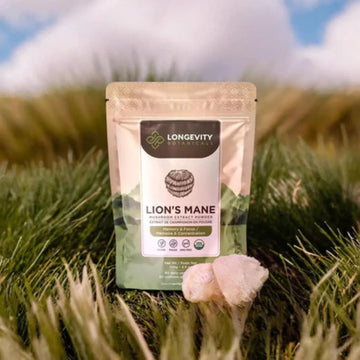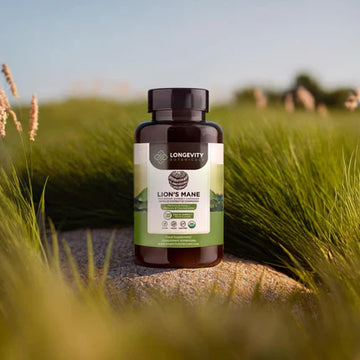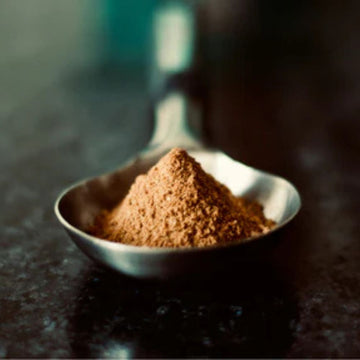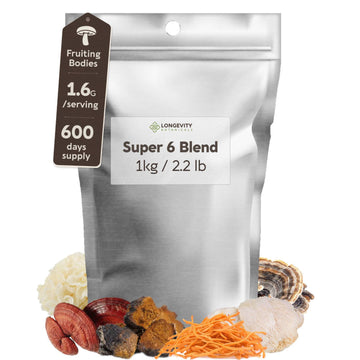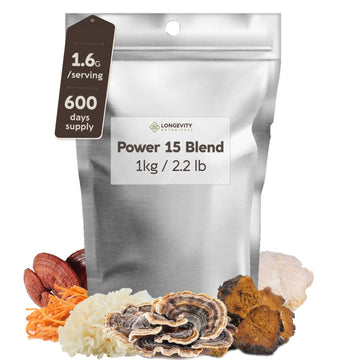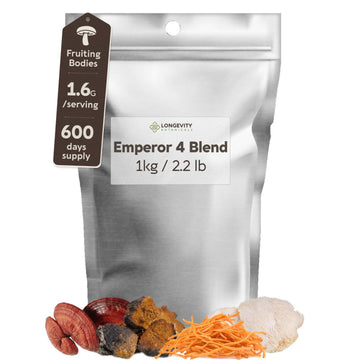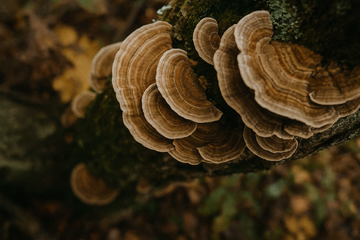Turkey tail is a colorful woodland mushroom known to science as Trametes versicolor. One of its best studied compounds is a protein-bound polysaccharide called PSP. You will see PSP described as a “polysaccharopeptide.” In simple terms, it is a chain of sugars linked to small pieces of protein.
Why should you care about PSP for gut health. Because parts of PSP behave like prebiotic fibers. Prebiotics feed helpful microbes. When those microbes thrive, they make short-chain fatty acids that support the gut lining and immune balance.
Quick primer, PSP versus PSK
PSP and PSK are not identical. Both come from turkey tail, yet they differ in their protein and sugar makeup. PSP tends to have more carbohydrate content and a different set of sugars, while PSK is richer in peptide content. That difference matters when you read studies. Look for “PSP” in the methods if your goal is gut-microbiome support.
What human research says about PSP and your microbiome
Randomized clinical trial in healthy adults. In a controlled study, volunteers were assigned to PSP, to the antibiotic amoxicillin, or to no treatment. Stool samples were tracked for eight weeks. PSP produced consistent, prebiotic-like shifts in the gut microbiome. Amoxicillin, by contrast, caused large changes that persisted for weeks, including a rise in Escherichia/Shigella. This trial supports the idea that PSP can modulate human gut bacteria in a favorable way. Read the PubMed record.
What changed in the lab dish. Before the human trial, researchers fermented human fecal microbes with turkey tail PSP. They saw more lactic acid and short-chain fatty acids, a lower pH, and a rise in helpful groups like Bifidobacterium and Lactobacillus, with a drop in some less friendly genera. These are classic signs of prebiotic action. See the in-vitro study.
Early animal data add context. Recent work in diet-induced gut imbalance shows turkey tail polysaccharides can shift the gut community toward greater diversity and healthier ratios, along with changes in bile-related bacteria. These findings build the case for a microbiome mechanism, although animals are not people. Review the 2024 paper.
How PSP may support gut balance
Feeds the right microbes. PSP contains complex sugars your enzymes do not fully break down. Gut microbes ferment these sugars. In the process, they multiply and outcompete less helpful species.
Boosts short-chain fatty acids. During fermentation, microbes make acetate, propionate, and butyrate. These acids help nourish colon cells, support the mucus layer, and signal to the immune system to stay balanced. The in-vitro study above showed increases in these acids, which fits this story.
Supports a healthy pH. More organic acids lower stool pH slightly. A modestly acidic environment tends to favor beneficial fermenters over opportunistic species. This is one way prebiotics guide the community toward balance. }
PSP and products, what to look for on a label
Names matter. If a supplement is built around PSP, the label should say “PSP” or “polysaccharopeptide.” Some turkey tail products are whole-mushroom extracts that focus on beta-glucans rather than purified PSP. Both can support gut health, yet they are not the same extract used in the PSP trials.
Fruiting body quality. If you prefer a traditional route, choose 100 percent fruiting body extracts with verified beta-glucan content and transparent testing. This supports overall gut and immune wellness and aligns with our approach to quality. For a deeper dive on why fruiting bodies matter, see this explainer.
Learn more about turkey tail and the gut. If you want a broader overview of how this mushroom fits into daily routines for digestion and regularity, read our quick guide on turkey tail for gut health and our general turkey tail benefits.
How to use turkey tail for microbiome support
Pick a format you will use every day. Capsules are simple and consistent. Powders mix into tea, coffee, or smoothies. Consistency is the key to any prebiotic strategy. If capsules are easiest, consider our Turkey Tail Capsules. If you enjoy blends and drinks, see our Turkey Tail Powder.
Timing and pairing. Take turkey tail with a meal that includes fiber. Think oats, beans, or cooked veggies. Fiber plus turkey tail gives your microbes plenty to work with.
Start low, go slow. If prebiotics are new to you, begin with a small serving and build up over one to two weeks. A gentler start reduces gas or bloating as your microbes adjust.
Track simple markers. Keep a short log for two to four weeks. Note regularity, stool comfort, and any changes in bloating. Most people know within a month if a prebiotic is a good fit.
Who may benefit most
People rebuilding after antibiotics. The human trial did not test PSP as a treatment after antibiotics. It did show how much antibiotics can disturb the microbiome, and it showed PSP can modulate a stable microbiome. If you and your clinician are planning a gut-support plan after antibiotics, turkey tail can be one item on a broader checklist.
People focused on everyday gut wellness. If your goal is regularity, less digestive discomfort, and a more resilient gut ecosystem, a prebiotic-style approach makes sense. PSP and beta-glucan rich extracts both fit that theme.
Safety and smart use
General tolerance. Turkey tail is widely used and is usually well tolerated. As with any prebiotic, gas or mild bloating can occur at the start. Adjust your serving or split doses with meals.
Medical conditions and medications. If you have a serious condition, are immunocompromised, are pregnant, or take prescription drugs, talk with your healthcare professional before adding new supplements. This article is for education, not medical advice.
Putting it all together
PSP from turkey tail shows prebiotic-like activity. A randomized trial in healthy adults found microbiome modulation with PSP. Lab work shows increases in short-chain fatty acids and helpful genera when human fecal microbes ferment PSP.
You do not need to chase a single extract to support your gut. A high-quality, fruiting-body turkey tail extract can be an easy daily habit. Choose clear labels, stick with it for a month, and pay attention to how you feel and function. For a simple way to shop or compare options, view our turkey tail collection.
Sources to explore. Human microbiome trial on PSP, Gut Microbes 2014. In-vitro prebiotic signals with PSP, Plant Foods for Human Nutrition 2013. Animal gut-microbiome context for T. versicolor polysaccharides, Microorganisms 2024.
